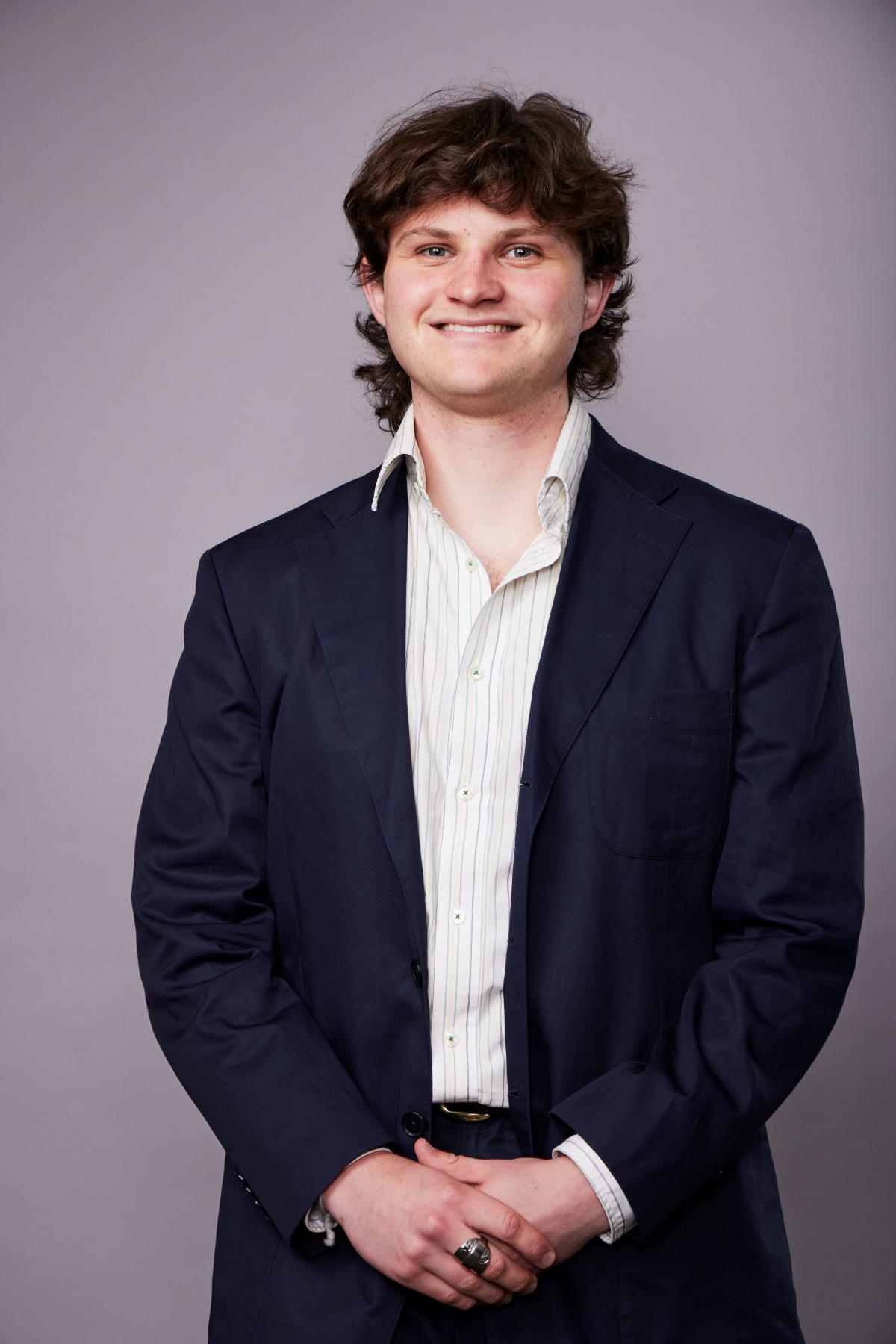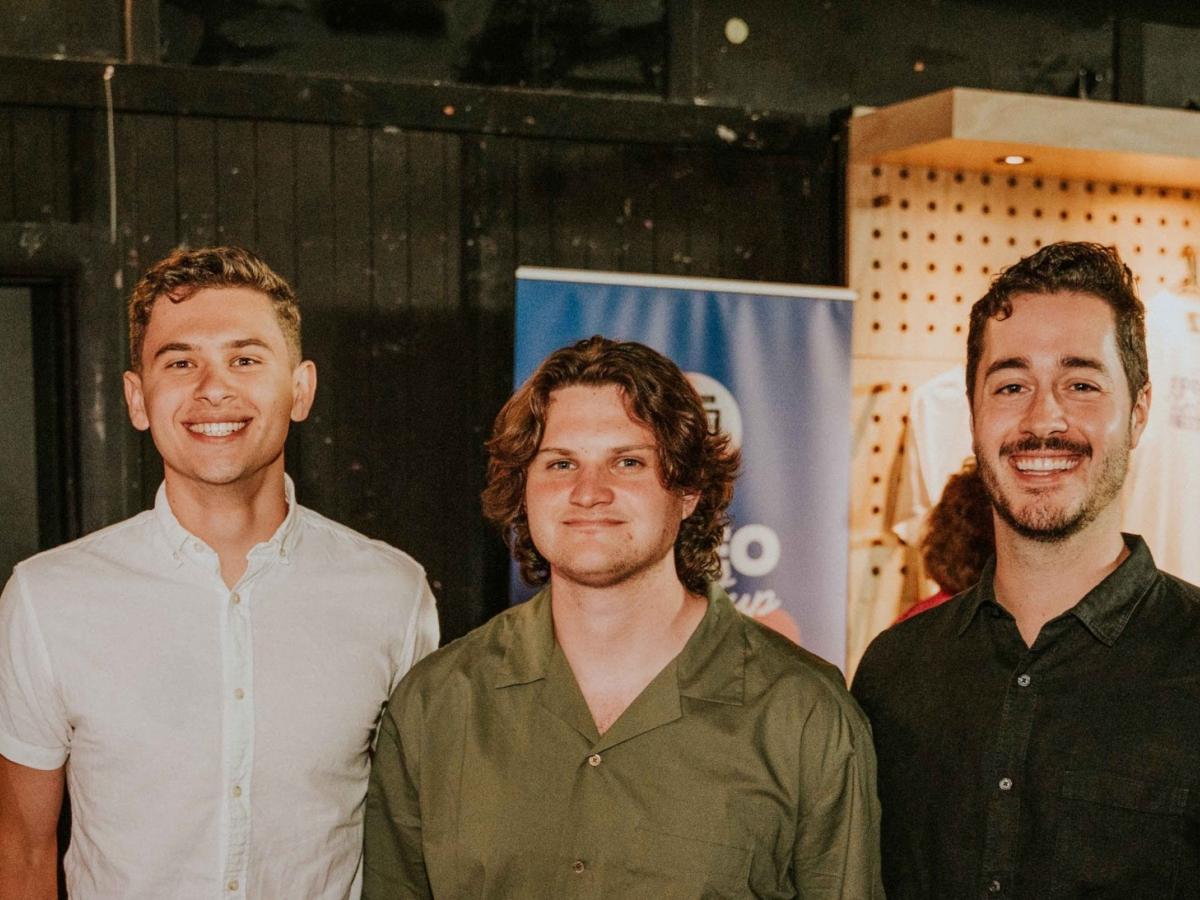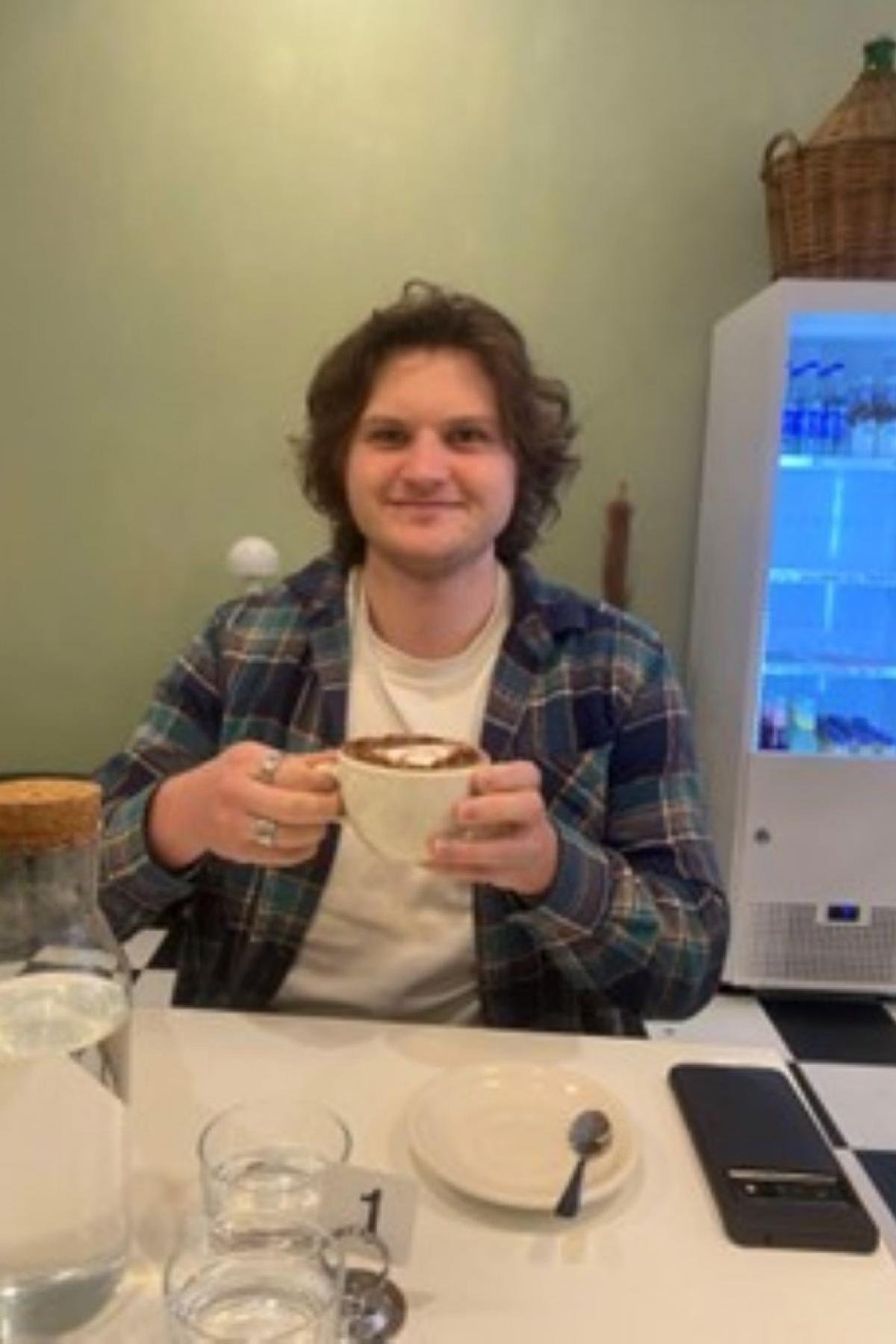Harry Spurrier

Harry Spurrier is a 2023 Westpac Future Leaders Scholar pursuing a PhD researching AI in teams. During his undergraduate (Bachelor of Psychology (Adv)(Hons) 2022) Harry founded NuroHero, a social enterprise connecting young people with disabilities to business, through community participation.
In school, Harry never expected he would be a PhD candidate or entrepreneur. He still doesn’t know the other, different career paths life might take him down later. But through his experiences, he’s gained valuable insights for those who aren’t quite sure where their future will lead.
Harry shares what helped him in his journey to entrepreneurship, PhD, and beyond...
The following is in Harry’s own words, in response to questions from our alumni team.
I’m still early in my career, and I’ve never had a consistent idea of what I wanted to do. Instead, I figured out what I didn’t enjoy and tried different things, speaking to lots of people along the way. That’s how I developed my current interests. I don’t think I’ll stick to one career path forever—I like to reflect and evolve, aligning my skills, interests, and values as they change over time.
Understand yourself, your context and the support you have available
From an upbringing and family perspective, I’ve been very fortunate and privileged. The safety net and support I’ve always had have enabled me to take more risks, fail more often, and get back up more times than most people might be able to. This has definitely shaped my journey.
Looking back on my childhood, I think a lot of my interest in my current career path comes from observing my parents and the way they approached their work. I would sometimes ask them about their jobs or tag along with them. Watching my mum as a paediatrician and my dad as a sports physio, I saw how they supported others and worked to solve problems. That had a big influence on shaping my values. It wasn’t so much about specific jobs, but more about the actions and how they approached their work.
I was also lucky to grow up with the example of my older sister Phoebe and younger brother Hugo, who pursued their own interests. It was clear that our family’s support wasn’t tied to a specific path. As long as we found what we were doing interesting and gave it a fair shot, our parents were always encouraging. We also have, and had, very supportive grandparents.
That said, I’ve faced personal challenges with both study and mental health. Throughout most of my schooling, I was a B-grade student and somewhat reserved. I never would have expected to pursue a PhD or start a startup. I’ve always been very reflective—probably too much at times—and during school, this tendency often manifested as a negative attitude toward myself. Overcoming negative self-thought is a long and ongoing process, something many people deal with. What has helped me immensely is knowing I have support and learning not to be too hard on myself in non-useful ways. I try to focus on learning and process, over catastrophising on ‘shoulds’ and ‘shouldn’ts’.
My constant reflection has also become an asset in helping me ask more meaningful questions. Instead of dwelling on whether I should have done something better, I try to focus on what I learned from the experience. That shift in perspective has made a big difference for me.

Find your own motivations and follow your passions
"I’m really motivated by the process of creating things, especially projects where you can continuously improve and make progress over time."
Clarity is a big driver for me—when I can see the bigger picture and piece together what I’ve learned, where I am now, and what I want to do next, it really energizes me. I find that if I’m stressed or overwhelmed, it’s hard to get motivated, but once things click into place, I can really dive in.
I’m also motivated when something I’ve said or done has a positive impact on someone, or when they find it interesting or valuable—that feedback loop feels great.
Aside from my PhD, I'm currently working on some other exciting things. First, I’m developing a startup called Cohesion with two fellow Westpac Future Leaders Scholars, Nicholas Pritchard and Elliott Fourie. Cohesion helps people effectively prioritize and communicate their ideas with their teams, aligning their work with business goals.
For a less buzzwordy way of explaining that: imagine a room full of smart people trying to make a decision, but it feels like no one is speaking the same language, and you're all arguing in circles without moving forward. Our product solves this by collecting evidence to back up decisions and aligning the rationale to the goals or strategy of the team or organization. We also use AI to generate documents that help people communicate with different teammates who may have completely different backgrounds and experience.

Map your path… but don’t get too attached
I wouldn’t recommend following someone else’s career path too closely, because your expectations of what it will be like are often quite different from the reality. Instead, I’d suggest focusing on understanding yourself better. Take the time to research different jobs, try out various things, and have coffee with people to ask about their careers. The goal is to figure out what you like and don’t like, what you’re good at, and what you and the people around you value.
A helpful tool for figuring this out is Ikigai, which is a Venn diagram of what you love, what you’re good at, what you can be paid for, and what the world needs. A similar idea comes from Jason Cohen (the founder of WP Engine), who breaks it down into joy (what you love doing), skill (what you’re great at), and need (what your company or work requires). He also talks about the traps you can fall into: if you have joy and skill but there’s no need, you’re just in a useless flow state; if you have joy and there’s a need but you’re not skilled, that’s indulgent failure and you may need more practice; and if you have skill and there’s a need but no joy, you’re at risk of burning out.
Ikigai is a Japanese concept or philosophy that is rooted in japanese culture. The Japanese word ikigai combines "iki" (which means life) and "gai" (value). The core of this concept is that we all have something to offer the world, and finding that thing will give us purpose and, ultimately, happiness.
"Take the time to research different jobs, try out various things, and have coffee with people to ask about their careers. The goal is to figure out what you like and don’t like, what you’re good at, and what you and the people around you value."
Of course, it’s a privilege to think you can sit down, map out your perfect career path, and then follow it. That’s not realistic. We all have responsibilities and commitments that fall outside of this but need to get done. It’s important to also consider the type of environment and culture you thrive in.
Ultimately, tools like Ikigai or Jason Cohen’s framework are just that—tools. You can’t theory-craft your way to a perfect career. You need to test things out, and your path will evolve over time as your interests and skills change. Check in with yourself periodically, but don’t overthink it too much. The key is to keep learning and adjusting as you go.
Take the time to notice what you’ve achieved
I’m not always great at slowing down and recognizing my achievements—I tend to move straight to the next thing. A friend of mine, Eloise Hall, who’s the founder and managing director at TABOO, taught me an important lesson about this. Right after I submitted my honours thesis, I had the chance to attend the Social Enterprise World Forum for my social enterprise NuroHero. Eloise made me sit down and reflect on what I’d accomplished before diving into the conference. Since then, I’ve tried to take that advice more seriously—to slow down, celebrate what I’ve done, and not immediately nitpick or brush it off. It’s a challenge, but it’s valuable.
I’ve been reflecting on what I’m grateful for, and a highlight for me is realizing just how many supportive people I have around me—my family, partner, friends, and colleagues. They may not always be able to help me directly, but they’re always cheering me on, and they won’t think less of me if I change direction or don’t achieve what I set out to do. So, while I don’t have a specific achievement to point to, I’m really thankful for the support I have, and that’s something I take pride in.
